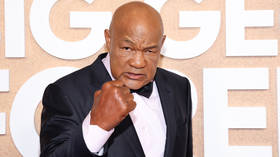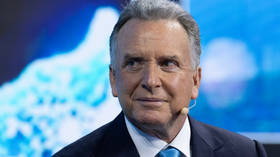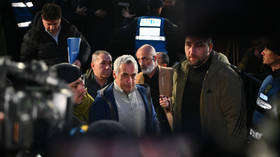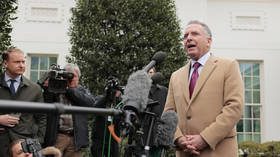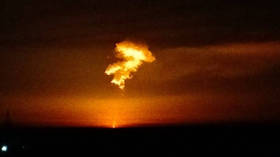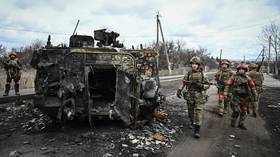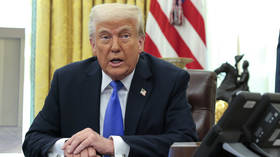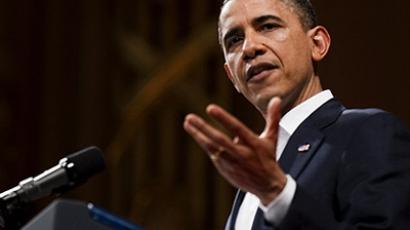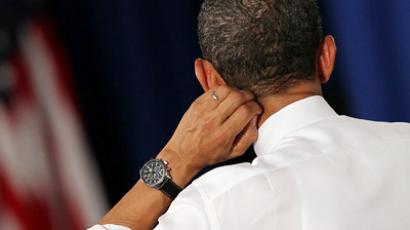Ron Paul says Obama is practically a dictator
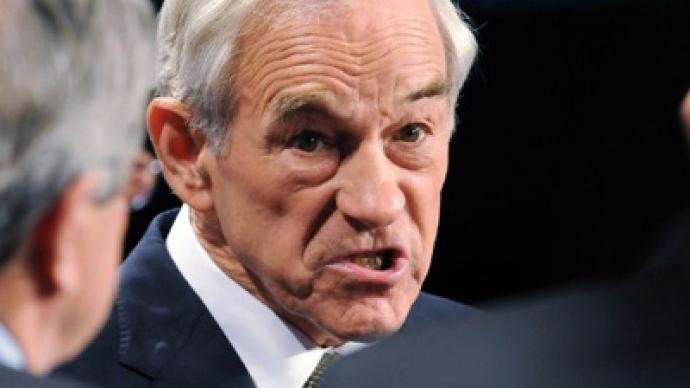
Republican presidential candidate Ron Paul says that these times are frustrating ones for the commander-in-chief, but that doesn’t give Barack Obama an excuse to deviate from the Constitution.
According to Paul, President Obama’s role in office is approaching that of a dictatorship. In an open letter issued by Texas Congressman Ron Paul dated November 7, the GOP hopeful calls out the current US president for time and time again misusing his ability to implement executive orders to bypass the system of checks and balances that America’s forefathers inscribed to keep the country in order. Given Obama’s familiarity with the US Constitution — he lectured in it at the University of Chicago Law School for 12 years — Rep. Paul says that the president should know a thing or two about what the document says.“Getting something done is proving to be a monumental task,” writes Paul. “This may be news to the supposed constitutional scholar who is now our president, but if the political process seems inconvenient to the implementation of his agenda, that is not a flaw in the system. It was designed that way. The drafters of the Constitution intended the default action of government to be inaction. Hopefully, this means actions taken by the government are necessary and proper. If federal laws or executive actions can't be agreed upon constitutionally- which is to say legally- such laws or actions should be rejected.”Paul goes on to state the Obama’s handling of constitutional law might be a misstep, but falls in line with the policies implemented by other administrations throughout history. That, however, does not necessitate a precedent that allows the president to ignore the law of the land.Specifically, says Paul, President Obama has increasingly relied on executive orders to enact policies that congressional lawmakers might not agree with the commander-in-chief on. “The current administration has unabashedly stated that Congress's unwillingness to pass the president's jobs bill means that the president will act unilaterally to enact provisions of it piecemeal through Executive Order. Obama explicitly threatens to bypass Congress, thus aggregating the power to make and enforce laws in the executive. This clearly erodes the principles of separation of powers and checks and balances. It brings the modern presidency dangerously close to an elective dictatorship.”Perhaps most obvious of Obama’s constitutional go arounds is the president-approved US Military operation in Libya in conjunction with NATO forces. The president personally ordered the delivery of thousands of American troops to oust former Libyan leader Muammar Gaddafi without seeking congressional approval and continued to avoid asking permission to keep the battles waging for months after the fact. As the days of American involvement overseas added up, many lawmakers — Paul included — attacked Obama for being in violation of the War Powers Resolution Act, which specifies that the president must seek approval for long-lasting military involvement. Obama, however, insisted that the Libyan skirmish — in which American drone aircraft launched around 145 missile strikes — did not equate to an actual war.“If the President cannot present to Congress and the people a convincingly strong case for going to war, then perhaps we should keep the nation at peace, rather than risk our men and women's lives for ill-defined reasons,” writes Paul. Paul has repeatedly made the issue of America’s many wars a focal point of his bid for the Republican nomination in 2012. At a GOP debate in September, Paul lectured the crowd on how the ongoing operations that America was involving itself in were driving the country deeper into debt during a time when the deficit was in the trillions."We're in 130 countries. We have 900 bases around the world. We're going broke,” said Paul. He added at the time that those very missions — including the one in Libya which the president did not get the okay from Congress for — was detrimental to the future of America.“If we think that we can do that and not have retaliation, we're kidding ourselves. We have to be honest with ourselves. What would we do if another country, say, China, did to us what we do to all those countries over there?" he asked.



